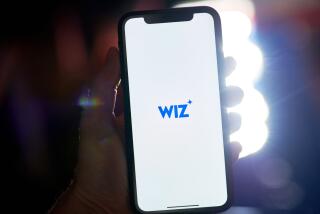Justice Department Explains Backing for Newspaper Deal
- Share via
SAN FRANCISCO — The Hearst Corp.’s purchase of the San Francisco Chronicle and the transfer of the afternoon Examiner to a local publisher are not likely to reduce competition in the city, the Justice Department told a federal judge Thursday.
U.S. District Judge Vaughn Walker, who is presiding over an unprecedented antitrust case against Hearst, had asked for an explanation of the Justice Department’s support for the deal.
Mark Botti, who personally supervised the government’s lengthy antitrust probe, responded in a letter that Hearst’s purchase, “on its face, appeared to result in a possible monopoly.”
Botti also recounted the department’s efforts to persuade Hearst to include the Examiner’s 50-50 profit-sharing agreement with the larger Chronicle as part of the sale.
Hearst refused--and ultimately decided to “sell” the Examiner for $1 with a $66-million subsidy to local publisher Ted Fang, who plans to remake Hearst’s flagship paper into a leaner, suburban style daily bent on aggressive coverage of neighborhood issues.
That deal satisfied his department’s concerns, Botti wrote. Under Fang, the Examiner “is likely to compete on price, after a four-month transition period, as well as on editorial and reportorial content.”
Hearst’s lead lawyer, Gary Halling, said, “We’re fairly pleased with this. We really believe that this letter and the record at the trial support our position.”
Paul Shinoff, a spokesman for Clint Reilly, a real estate developer and former mayoral candidate who sued to block the deal, calling it anti-competitive, said the Justice Department’s logic is flawed.
“We believe they were wrong when they made their statement approving the deal and they’re wrong today,” Shinoff said. “Politically they want to defend the conclusion of their investigation, and legally they’re finding that difficult.”
The trial ended May 31.
Both sides said Thursday that since the Justice Department had declined to intervene in the case beyond explaining some of its decisions in Botti’s letter, a ruling in the nonjury trial could come quickly.
More to Read
Sign up for Essential California
The most important California stories and recommendations in your inbox every morning.
You may occasionally receive promotional content from the Los Angeles Times.











